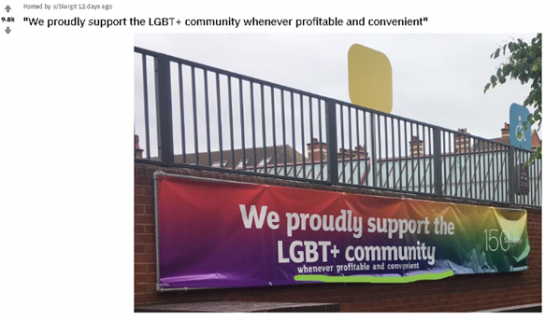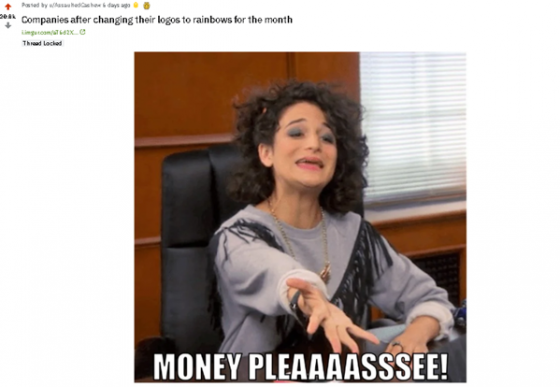June marks Gay Pride month, celebrated in many countries across the world. Whilst the first thing that many will think of are the various marches that will take place across major cities, brands and corporations too will also be keen to publicise their Pride credentials this month.
Some brands will make efforts to physically change their products to celebrate the month. Others may make less effort, changing their logo to a rainbow theme and thinking ‘job-done’.
There is an inherent risk with ‘jumping on the band wagon. In 2019 brands must communicate values that are reflected in their day-to-day actions. Rather like the rise of the term ‘green washing’, where it’s no longer acceptable to discuss sustainability once a year in a CSR report, these values have to be visibly demonstrated in everyday activity.
As brands continue to engage with events like Pride, they must do so in the right way. Filtering a brand logo in rainbow colours isn’t enough and the risk of a backlash from consumers will grow – particularly if companies are perceived to be engaging with such events purely to improve profitability. This backlash could come in two forms.
Firstly, some consumers are likely to stop purchasing or otherwise engaging with those brands in protest at their involvement with “progressive” causes. Unsurprisingly, this reaction will often align with the “culture wars” affecting much of the Western world.
The second form of backlash has greater reputational consequences.
The phenomenon of the “citizen journalist” has been understood by many communicators and businesses for some time now. In 2019 however, “citizen journalists” have been replaced by “citizen activists”. The ability for any consumer, or group of consumers, to pick up a phone and create a viral campaign on Twitter, Facebook, Reddit etc., is unparalleled. Many crisis management trainings will certainly have included a potential activist campaign beginning on social media as one scenario, underlying the risks that such campaigns can pose.
When engaging with events like Pride, it is important that consumer facing brands in particular understand social media in its varied forms. A cursory look on Twitter, Facebook, and particularly Reddit will show plenty of examples of consumers creating images (or memes) highlighting what they see as cynicism from brands trying to present their Pride credentials.







Comments